The Southerner
Sam Tucker, a cotton picker, in search of a better future for his family, decides to grow his own cotton crop. In the first year, the Tuckers battle disease, a flood, and a jealous neighbor. Can they make it as farmers?
The Southerner is a 1945 American drama film directed by Jean Renoir and based on the 1941 novel Hold Autumn in Your Hand by George Sessions Perry. The film received Oscar nominations for Best Director, Original Music Score, and Sound. Renoir was named Best Director by the National Board of Review, which also named the film the third best of 1945. The film portrays the hardships of a poor family struggling to establish a cotton farm in Texas in the early 1940s.
Plot
As the film opens, Sam Tucker is a share-cropper, in Texas, picking cotton in a sunbaked field along with his wife Nona and his elderly Uncle Pete. Pete suddenly collapses due to the extreme heat and to what he blames as “my darned old heart”. Before he dies, he tells his nephew, “Work for yourself; grow your own crops.” Sam heeds his uncle’s advice, so he, Nona, their children Daisy and Jot, and “Granny” leave the migrant camp and set out to work a vacant tenant farm with little more than two mules, a second-hand plow, and some cotton seed and fertilizer. The land that the family leases includes only a decaying shack and a well, a dry one. In immediate need of drinking water, Sam visits a gruff neighboring farmer, Henry Devers, who reluctantly allows the Tuckers to share water from his well.
Cinematographer Lucien Andriot used low-level soundstage lighting to create dramatic shadows for the Tuckers’ arrival at the farm.
Sam and his family nearly freeze and starve during their first winter on the farm, surviving largely on a limited diet of opossums, raccoons, and other small game that he is able to shoot. As spring arrives, Jot falls ill with “spring sickness”. The town doctor informs Nona that the boy needs more diverse, vitamin-enriched foods, including vegetables, fruits, and milk to survive. The Tuckers immediately plant a garden, but its produce will take time to mature. Daily servings of milk would provide the suffering Jot with some timely relief, but the family cannot afford to buy or even rent a cow.
Sam’s friend Tim offers to help get him a factory job that pays the attractive wage of seven dollars a day. Sam, though, remains determined to succeed as a farmer. Soon the family’s prayers are answered when Harmie, who owns the local general store, and Tim arrive in Harmie’s flatbed truck with a milk cow, which young Daisy names “Uncle Walter.” The family’s cotton crop and the much-needed vegetable garden they planted finally begin to flourish. Meanwhile, the embittered Devers and his strange nephew Finlay plot to ruin the Tuckers so Devers can buy the tenant farm for a cheaper price from its owner.
After Finley destroys the Tuckers’ garden, Sam confronts Devers at his farm. There Devers, armed with a knife, declares he will no longer share his well water, whereupon the two men have a near-deadly fight. Sam leaves and Devers gets a rifle and follows him. Soon he finds Sam at the nearby river pulling in a fishing line on which he has hooked “Lead Pencil,” an enormous catfish that Devers has been trying to catch for years. In return for the fish and the bragging rights that he was the one who caught it, Devers agrees to give Sam his garden and allow him continued access to his well, a deal that effectively puts an end to the trouble between the two families.
This location shot with actors (left to right) Naish, Scott, and Lloyd illustrates Androit’s use of early- and late-day sunlight to maintain stark shadowing effects.
Harmie now marries Sam’s mother, and a party is held at his general store to celebrate the wedding. Life at last seems to offer true promise for the Tuckers amid the joy of that occasion. Unfortunately, a violent rainstorm rolls in as the party is ending. The next day the family returns to their farm, where heavy winds and flooding from the storm have ruined their entire cotton crop and ravaged their home. Sam, stunned by the sudden devastation, lets Tim accompany him as he searches for the family’s missing cow. They find the animal alive but struggling in the swollen river. Tim nearly drowns in the deep water, but Sam rescues him. After pulling his friend from the river, Sam tells him that he is giving up farming and is now willing to take a factory job. However, upon returning again to his battered home, he reconsiders his decision about quitting once he sees the resilience of his wife and grandmother, who are busy cleaning up what remains of the house and professing their resolve to start over again. The film ends with Sam and Nona, months after the flood, standing together in a freshly plowed field preparing for a new season and a new crop.
Cast
Zachary Scott as Sam Tucker
Betty Field as Nona Tucker
J. Carrol Naish as Henry Devers
Beulah Bondi as Granny Tucker
Percy Kilbride as Harmie
Charles Kemper as Tim
Blanche Yurka as Mama Tucker
Norman Lloyd as Finlay
Estelle Taylor as Lizzie
Paul Harvey as Ruston
Noreen Nash as Becky Devers
Jack Norworth as Dr. White
Nestor Paiva as the bartender
Paul E. Burns as Uncle Pete Tucker
Jay Gilpin as Jot Tucker
Jean Vanderwilt as Daisy Tucker
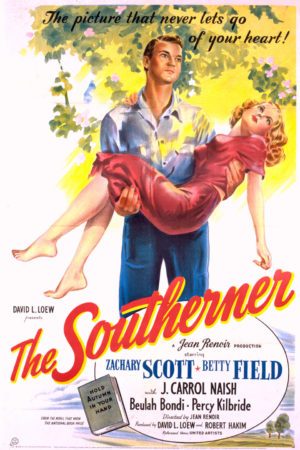
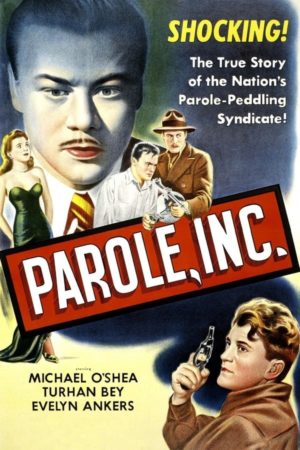
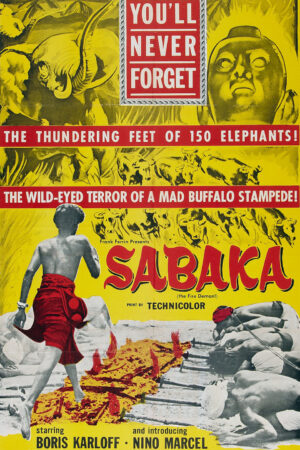
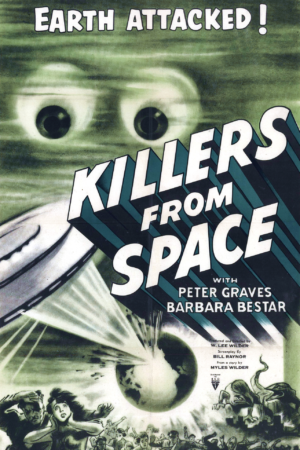

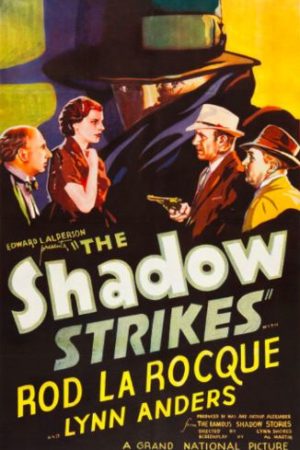
There are no reviews yet.